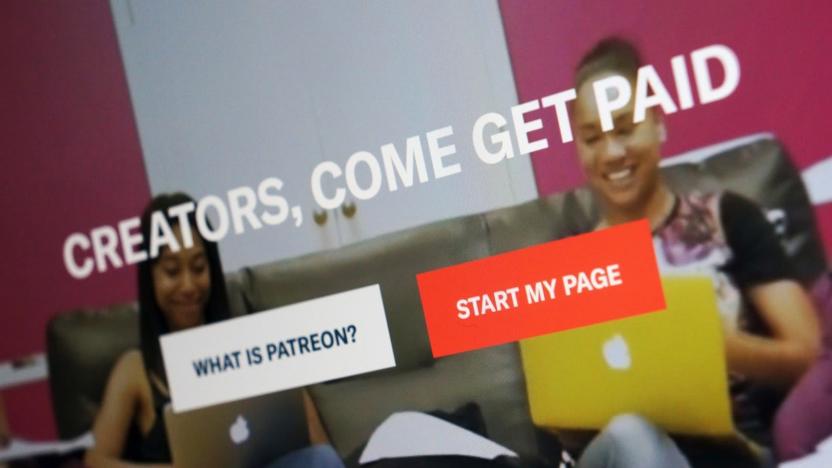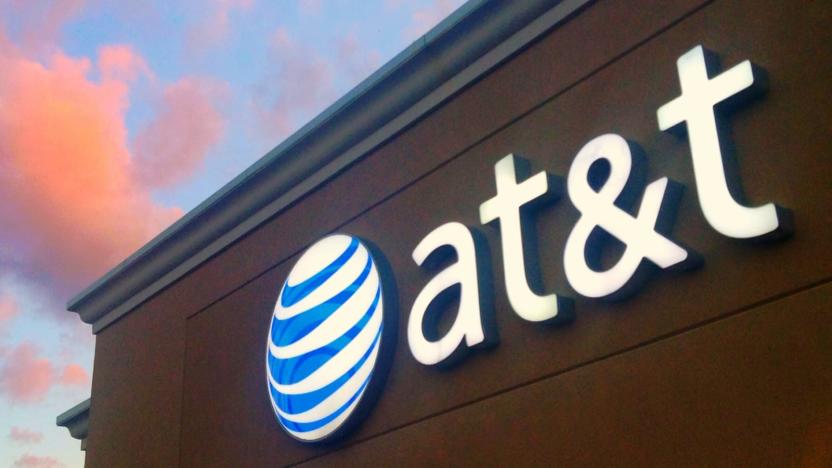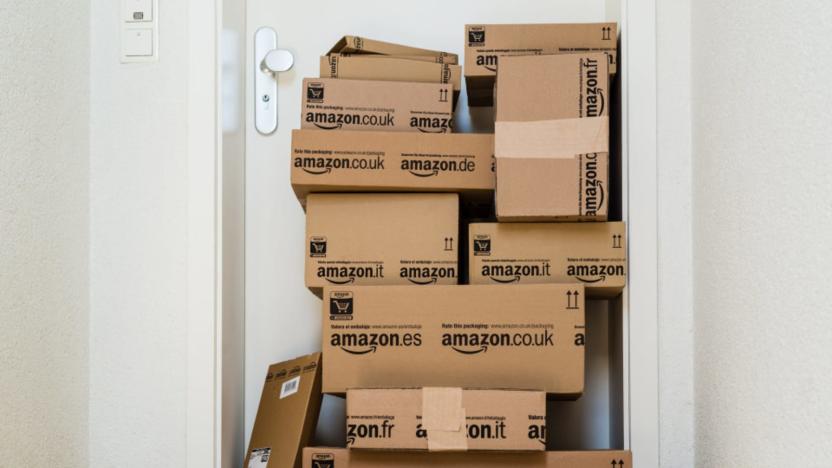fee
Latest

Facebook agrees to pay the UK £500K for the Cambridge Analytica scandal
Facebook may be looking ahead to the 2020 election, but it's still sweeping up debris from 2016. Today, Facebook agreed to pay the UK's Information Commissioner's Office (ICO) £500,000 (about $644,000) for its role in the Cambridge Analytica scandal. As part of the deal, Facebook will not admit to any wrongdoing.

Amazon Fresh deliveries are now free for Prime members
Amazon is ditching its $14.99 a month Amazon Fresh fee for Prime members. Prime subscribers in the 2,000 US cities where the fresh food delivery service is offered can use it for free and take advantage of new one- and two-hour delivery windows. Shopping from Whole Foods is also an option here, and it's subject to the same quick delivery times. You can sign up here but you'll have to wait for an invitation -- as Amazon says, "We expect this will be a popular benefit."

Patreon splits its service to cater for different creators
Patreon is rolling out a new price plan structure. Announced today, the new system comprises Patreon Lite, Patreon Pro and Patreon Premium -- three tiers that, according to the company, are designed to better match the needs of creators.

California considers a texting tax
Cell phone owners in California could soon pay extra for the privilege of sending text messages, thanks to landline-era legislation and changing usage patterns. According to recent public law filings, the state's Public Utilities Commission (PUC) is considering a plan that would bill users a monthly fee for any text message services they use, and phone service carriers aren't happy about it.

AT&T quietly hikes customer fees to pay for Time Warner deal
After splashing out $85.4 billion on Time Warner, AT&T needed to find some extra cash from somewhere, so it's been quietly bumping up customer fees since April. The company has increased prices twice in the last three months, first by 50 cents, then by a further 73 cents in June. Customers are now paying an additional $1.23 in administrative fees, adding up to an estimated $800 million in extra revenue for the telecommunications carrier.

Amazon is cracking down on counterfeit goods
Amazon is cracking down on more than just counterfeit reviews -- the e-commerce juggernaut is waging a war against fugazi products, too. In order to sell Adidas, Asics, Hasbro, Nike and Samsung products, Amazon is asking for a $1,000 to $1,500 fee and a surfeit of paperwork according to CNBC. One of the publication's anonymous sources provided a screenshot of the submission process for Samsung. The requirements? An invoice no more than 90 days old showing the purchase of at least 30 items, with at least five different products across the invoices.

Verizon plans $20 upgrade fee, even if you paid for your new phone
Eyeing up the small but nimble iPhone SE? If you're on Verizon, you'll want to make the switch sooner rather than later. According to a memo leaked to MacRumors, the company is planning to introduce a $20 dollar upgrade fee, irrespective of whether you're paying full price for the phone upfront or own it outright. The memo says this fee is there to cover "our increasing support costs associated with customers switching their devices," which sounds incredibly suspect.

Instagram says it's not changing your feed... yet
The internet flung into a panic today as users prepped for Instagram to change how images display in its feed. Earlier this month, the filter-driven photo app announced that it would switch from a chronological order of photos to an algorithm-based approach like Facebook does with the News Feed and Twitter's option for organizing Timelines. The idea is to push things the software thinks you'd like to see more to the top, but, of course, this means you're likely to miss out on some things, too. Based on the high level of panic and the service being inundated with posts begging followers to turn on notifications, Instagram took to Twitter to assure us that nothing is changing yet.

Samsung launches a phone upgrade program of its own
With global smartphone sales decidedly flat, how can companies push new device sales? As expected, Samsung is following in Apple's footsteps by launching an upgrade program that will motivate users to get fresh models. According to Reuters, customers in South Korea who purchase the Galaxy S7 or S7 Edge phones have the option to sign up for the 24 month plan and pay 7,700 won ($6.35) on top of the cost of the phone. Like the program that went live in the UK last week, customers can turn in the device and get the Galaxy S8 or whatever the latest model is.

WhatsApp is dropping the $1 annual fee
WhatsApp, the $19 billion dollar messaging service is dropping its $1 annual fee. Founder Jan Koum revealed the news on stage at this year's DLD conference, explaining that the buck-a-year charge might not sound like much, but still prevents many people from using the service -- in particular, those without access to card payments. If WhatsApp wants to become the messaging service of the masses (and it's well on its way), it needs to be entirely free, much like most of its competition.

Sony waives its publishing fee; Would Apple ever do the same?
Video-game maker Sony has been making a big push for independent developers lately, both on its handheld PS Vita system and on its upcoming PlayStation 4 console, and yesterday, the company took another big step. Sony has decided to waive its usual US$99 fee for PlayStation Mobile developers, meaning that anyone can join the developer network and publish games on its platforms for free. That's a big move, and while it might not mean a boost in PlayStation Mobile publishing (there are other hiccups, such as the difficulty of game creation and the limited size of the market), it does show just how open Sony is to independent software developers. So here's a question: Would Apple ever do the same thing? Ever since the App Store opened, Apple has charged $99 a year for a developer account to publish apps on its platforms. Anyone can download and use Xcode to make apps, but to publish them, you've had to pay that fee, and the price has never changed. If Apple did lower the price or remove it, there would be some benefits: There'd be more apps on the App Store, and thus more potential profit for Apple and its developers. The developer community would be more open, which would lead to better documentation and communication in general. And while, yes, there would probably be even more low-quality apps, there would also be more potential for great or terrific apps that focus on a relatively niche market. However, Apple would lose all the money it makes from the developer fee, money that probably goes into maintaining the developer network and its services. And Apple likely doesn't want the dev network to be a complete free for all. It still uses that network to beta test new software and operating systems, and there is still (technically) a non-disclosure agreement that binds anyone who signs up for the program. Plus, it's not like Apple needs more developers. Those numbers are growing every day, even with the fee in place. So it seems unlikely that Apple will drop or even change that fee anytime soon: It's a very low barrier to development, but for Apple, it's better than no barrier at all.

Sony lifting development license fee on PlayStation Vita and Mobile starting ... yesterday
Sony's already got a low barrier to entry for developers on its PlayStation Mobile platform, which encompasses the PlayStation Vita handheld game console and a variety of smartphones -- just $99 for a license enables publishing across all PlayStation Mobile devices. Apparently that fee is too much for some folks, so Sony's waiving it altogether. Starting right now (as of yesterday, actually), Sony's "removing any existing barriers" between developers and the PS Mobile platform by dropping the publishing fee, thusly making it all the easier for devs to push their games to the Vita and various smartphones. There are already some great indie games featured on Sony's PS Mobile store, including Vlambeer's Super Crate Box and Super Icon Ltd.'s Life of Pixel, and this paves the way for even more. Of course, Apple's iOS publishing fee is $99 per year and the App Store is certainly more flush with content than Sony's Mobile store, which tells us it isn't the license fee that's stopping people from pushing their games to PS Mobile.

Minecraft creator Notch's 0x10c is aiming at a monthly subscription fee
Minecraft has had a substantial impact on gaming in general and MMOs in specific, which means that Markus "Notch" Persson's next project is going to be watched closely by a lot of people. So it's interesting to note that in a recent interview he discusses giving 0x10c a sort of shared living space in an MMO style as well as mentioning that the game may very well charge players a regular subscription fee. Notch freely admits that it's a matter of making money off of the game, and it's meant to be a flexible approach. If free-to-play is more palatable than a subscription model, he's willing to experiment with that as well. The interview talks extensively about keeping the game's playing field level regardless of the business model as well as potential actions in an almost-MMO space; if you're curious to see what the game might look like, head on over for all the details.

Google Wallet to phase out prepaid card, cut-off date set for October 17th
Google Wallet's prepaid card concept has been plagued with its share of security concerns, and though Mountain View seems to have sorted out those issues, it's now phasing out the prepaid card program entirely. The service was intended to make up for a limited choice in debit and credit cards, and now that Google Wallet accepts any and all plastic, the prepaid option is a bit moot. The cut-off date for adding funds to a Google prepaid card is September 17th, and the prepaid option will vanish entirely on October 17th. Whereas users were previously charged $2.00 per month after 180 days without a transaction, they'll get slapped with the same fee after 30 days of no purchases. Google says you can request a refund if you have a remaining balance after the prepaid option kicks the bucket, though it's probably a good idea to just go ahead and spend those leftover dollars. [Thanks, Chris]

Consumer Cellular axes activation fees, retirees rejoice
Now here's a trend we can really get behind. Consumer Cellular, the "exclusive wireless provider for AARP members" (and a company that caters to the 50+ crowd), has announce that it will no longer be gouging charging its customers the dreaded activation fee. New and current customers looking to procure a phone qualify for the waiver and CC is extending the free activation offer to SIM-only patrons as well. Hopefully, this is the start of a grassroots movement in the wireless industry. The full press release is after the break.

Amazon Appstore shatters $20 ceiling for in-app purchases
In a move that's likely to grab the attention of more than a few Android developers, Amazon has announced that its arbitrary $20 limit for in-app purchases via the Appstore is no more. The company announced this change in an email to developers, which follows a tweak to the Appstore's parental controls. In-app purchasing is rather new territory for the Amazon crew, which first unveiled the necessary APIs just last week. There's no word on what new monetary limit is now in place, but make sure to watch your spending, kids -- some of these apps are incredibly habit-forming.

Verizon Wireless to start charging $30 handset upgrade fee
A Reuters report claims Verizon Wireless will start charging customers an additional US$30 when they upgrade their phone. This fee will apply to existing customers who buy new hardware with a two-year customer agreement. Verizon says it's levying this additional charge in order to "provide customers with the level of service and support they have come to expect." Verizon will be joining Sprint and AT&T, which also charge customers an additional fee when they upgrade.

Verizon pushes its upgrade fee to $30 on April 22nd
Ah, it was only a matter of time before Verizon decided to jump on the bandwagon of ridiculously high upgrade fees, now that Sprint and AT&T have both exercised the option. Big Red announced this morning that April 22nd will be the magic date in which it will charge you a cool $30 just for the privilege of purchasing a subsidized handset and signing a fresh two-year commitment. Granted, it's still less than the $36 sum that Verizon's two largest competitors now demand, but we're going in the wrong direction here, folks. Catch the dreary announcement after the break.

Amazon adds in-app purchasing to Appstore for Android devices, Kindle Fire
Amazon's Appstore has offered a typical application acquisition experience, save for one important detail: in-app purchasing. Beginning today, devs can now take advantage of the familiar revenue booster already available in the iOS App Store and Google Play, through the use of the Amazon Appstore In-App Purchasing API. The service will enable Android device and Kindle Fire users to pick up expansion packs, virtual gaming currency or manage subscriptions from within individual applications, with the same one-click purchase experience available in Amazon's online store. A handful of top devs like Disney and Conde Nast have already hopped on board, but those of you who haven't received an early nod from AMZN can now join in on the fun as well. Click past the break for a brief video intro from the e-tailer, along with a handful of testimonials in the full press release.

Verizon halts dubious third-party billing on landlines, years after landlines were 'in'
Okay, okay -- landlines are still useful. But rapidly growing, they are not. That said, Verizon is caving to congressional pressure in a relatively minor way, announcing that it'll be banning certain third-party charges on landline bills. In political circles, the process is known as "cramming," where customers (oftentimes unknowingly) submit their number to certain third-party add-ons that have generated some $10 billion in revenue over the past five years. Sen. Jay Rockefeller from West Virginia is applauding the move, and also encouraging Congress to make this commonplace across all carriers. Curiously, there's no mention of mobile blocking, where consumers are regularly duped into subscribing to recurring fees via text-based competitions and contests. Perhaps when we've all moved on to telepathy, the feds can get right on that.














